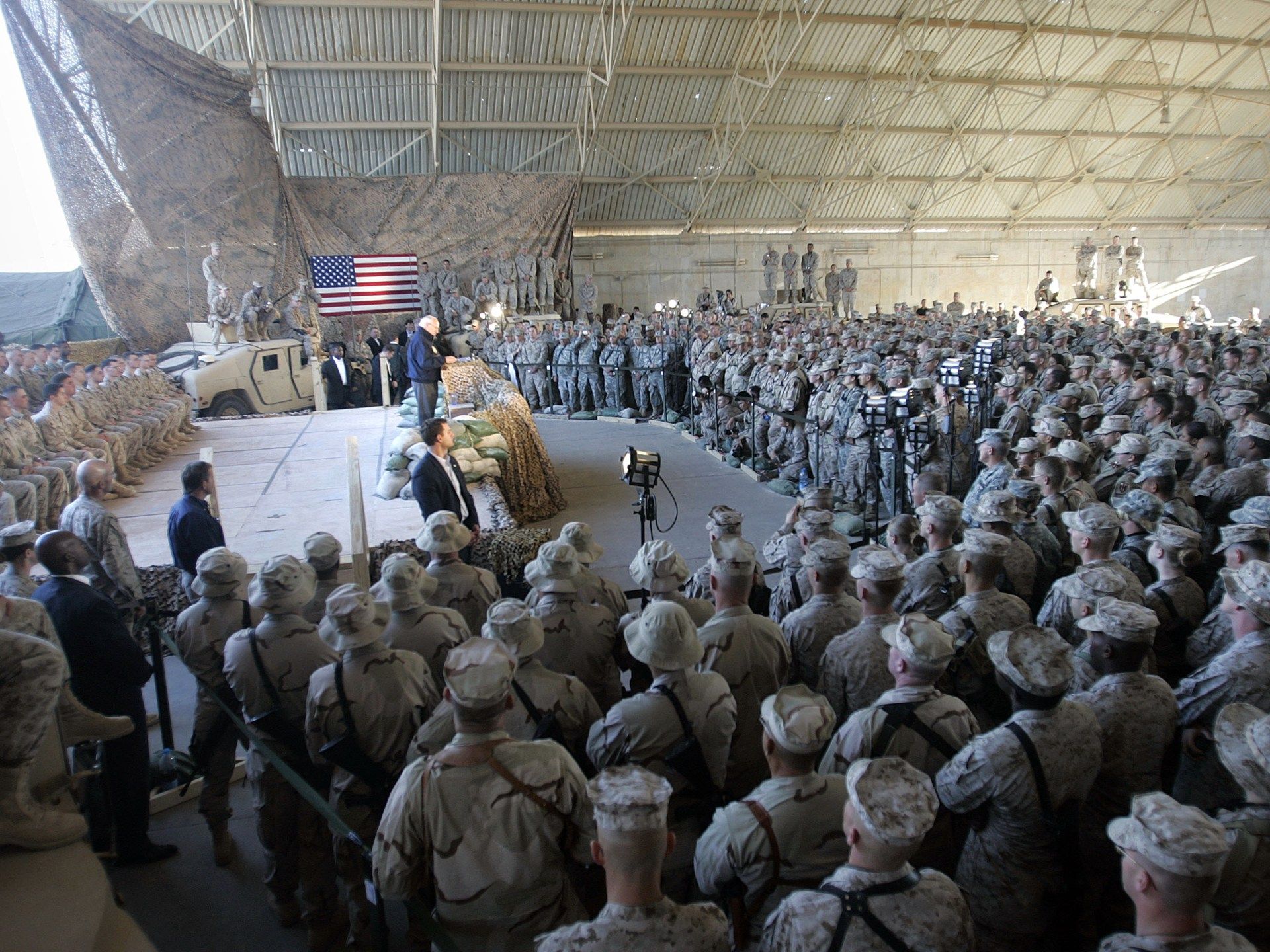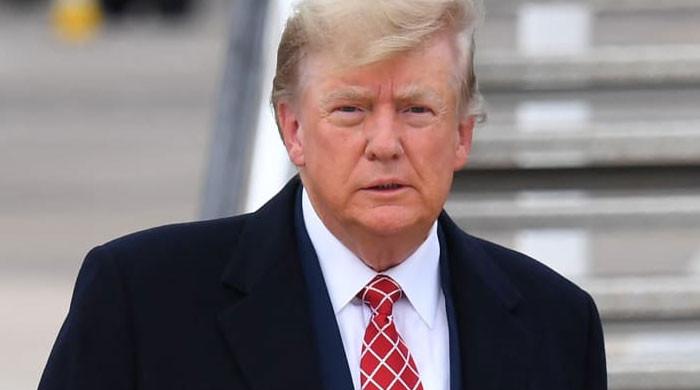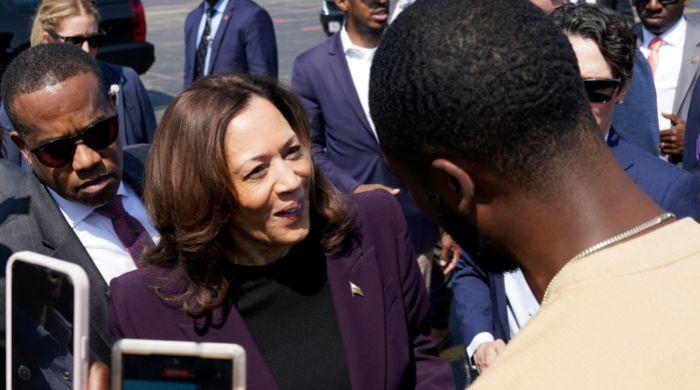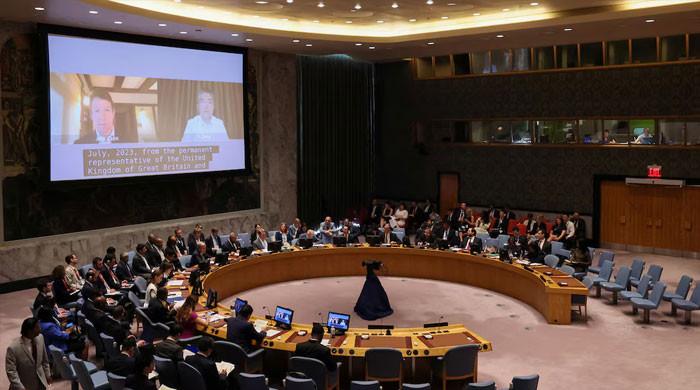In an unsurprising but telling development, former Republican Vice President Dick Cheney has thrown his support behind Democratic presidential nominee Vice President Kamala Harris instead of his party’s candidate, casting former President Donald Trump as an unprecedented threat to the United States. At first glance, this endorsement might seem like a defense of democracy by a longtime Republican stalwart, but beneath the surface lurks a troubling irony.
Cheney, the architect of some of the most disastrous domestic and foreign policies of the early 21st century, now seeks to claim the moral high ground. The legacy of his policies – particularly the havoc unleashed during the Iraq war and the broader “war on terror” – continues to reverberate around the world, causing suffering and instability that far exceeds anything Trump has wrought to date.
During Tuesday's presidential debate, Harris proudly touted Dick Cheney's endorsement as a badge of honor, a moment as disconcerting as it was revealing.
To embrace as a champion of American values a man whose policies left a trail of death and destabilization in their wake lacks any moral clarity. Cheney, whose hands are stained with the blood of countless innocents from Iraq to Guantanamo, who undermined American democracy and terrorized countless innocent Americans during the “war on terror,” should not be celebrated, especially by someone who aspires to the mantle of progressive leadership.
Cheney’s tenure as George W. Bush’s vice president is synonymous with neoconservative ambition, a vision of American dominance based on military intervention and disregard for international law. The 2003 invasion of Iraq is perhaps the most flagrant example of this approach. Together with President Bush, Cheney pushed a war based on false premises, notably the existence of weapons of mass destruction in Iraq and an alleged link between Saddam Hussein’s regime and the 9/11 terrorist attacks. Both claims were categorically debunked in the years that followed, but the human and financial costs of the war are staggering.
According to sources, the death toll among Iraqi civilians is estimated to range from hundreds of thousands to more than a million. This war destabilised an entire region, paved the way for the rise of extremist groups such as ISIS, and contributed to ongoing cycles of violence and displacement. The political vacuum created by Hussein's ouster remains unfilled as Iraq continues to grapple with internal conflict and external influences.
Domestically, the costs were equally profound. The war drained trillions of dollars from the U.S. economy — money that could have gone toward infrastructure, education or health care. Thousands of American soldiers lost their lives, and many more returned with life-changing physical and psychological wounds. Veterans of the Iraq conflict have some of the highest rates of post-traumatic stress disorder and suicide among recent generations of American soldiers, underscoring the cost of this misadventure.
And yet those who celebrate Cheney’s support for Harris instead of Trump now cast him as a defender of democracy, as if the destabilizing effects of his policies were somehow a lesser evil. The truth is that while Trump’s populist nationalism has damaged the social fabric of the United States, the neoconservative project that Cheney helped lead has caused immense human suffering on a global scale, far beyond anything Trump has achieved so far.
Cheney’s support for Harris, presented as a repudiation of Trump’s divisiveness, conveniently ignores her own role in the erosion of civil liberties in the United States and around the world.
One of Cheney’s signature policies, the “war on terror,” brought with it the expansion of executive power and a profound change in the relationship between the U.S. government and its citizens, especially Muslim Americans.
The Patriot Act, passed in the aftermath of the 9/11 attacks, granted the US government sweeping surveillance powers, many of which were abused in the name of national security. Cheney was one of the most ardent defenders of these measures, arguing that extraordinary threats demanded extraordinary responses. In practice, these measures disproportionately targeted minorities, particularly Muslim Americans.
Programs like the National Entry-Exit Registration System (NSEERS) targeted men from predominantly Muslim countries, leading to widespread racial profiling and unconstitutional detentions. Muslim communities in the United States had to bear the brunt of Cheney’s excesses, living under a cloud of suspicion that persists to this day.
On the international level, the “war on terror” led to even more serious abuses. Cheney oversaw the use of torture in U.S. military operations. “Enhanced interrogation techniques,” such as waterboarding, were employed at facilities like Guantanamo Bay and at CIA black sites around the world. These practices violated basic human rights and international law, leaving a stain on America’s global reputation. Many of those detained and tortured were never formally charged with any crime. To this day, Guantanamo Bay remains a symbol of injustice, where detainees languish without trial or meaningful recourse.
The erosion of civil liberties that Cheney helped create not only devastated communities, but also created a culture of fear that Trump later capitalized on during his rise to power. The anti-Muslim rhetoric that played a key role in Trump’s 2016 campaign has its roots in the fear-mongering that Cheney and his neoconservative allies perpetuated during the Bush administration. In this sense, Cheney himself laid the groundwork for Trump’s immigration and national security policies.
When examining Cheney's legacy, no issue seems more important than the invasion of Iraq. The war, fought under false pretenses, remains one of the costliest misadventures in modern American history. Under Cheney's influence, the Bush administration set aside diplomacy, dismissed warnings from the international community, and bypassed the United Nations Security Council. The war not only violated international law, it also undermined the very principles of sovereignty and self-determination that the United States purported to uphold.
The effects of the Iraq war are still being felt today. The instability it created in the Middle East made it fertile ground for extremist groups, leading to a proliferation of violence that spread to nations far beyond Iraq’s borders. The rise of ISIS, the ongoing Syrian civil war and the refugee crisis that has gripped Europe can all be traced, at least in part, to the power vacuum created by Hussein’s ouster.
Yet despite overwhelming evidence of the war’s catastrophic consequences, Cheney has never fully acknowledged his role in creating this disaster. By supporting Harris, he attempts to portray himself as a responsible statesman, but his record tells a different story: one of arrogance, miscalculation, and indifference to human suffering.
One reason Cheney’s support may resonate with some Democrats and centrists is the perception that Trump represents an existential threat to American democracy. Trump’s populism, his encouragement of far-right extremism, and his open disregard for democratic norms have undoubtedly damaged the political fabric of the United States. But Cheney’s legacy of violence and imperialism abroad, coupled with his domestic assault on civil liberties, paints a far more worrying picture of threats to democracy.
Trump’s most egregious actions have occurred on American soil, against immigrants, people of color, and marginalized groups. His rhetoric has fueled political violence and stoked deep divisions in American society. But the scope of Cheney’s policies, especially those played out on the world stage, outstrips Trump’s in terms of sheer human suffering. The wars Cheney promoted, most notably the Iraq War, claimed hundreds of thousands of lives and displaced millions. The torture and surveillance programs he helped oversee have left a lasting legacy of fear and suspicion, both at home and abroad.
What makes Cheney’s support and the Democratic Party’s support for Trump’s candidacy particularly galling is the way they gloss over these past sins to portray him as a guardian of American values. While Trump’s rhetoric and policies may have caused harm within the United States, Cheney’s decisions inflicted untold suffering on many more people around the world. The selective moral outrage they direct at Trump while embracing Cheney as a savior of democracy is a testament to the hypocrisy of the country’s liberal political establishment.
When approaching American politics, we must be careful not to view figures like Cheney solely through a partisan lens. Her criticism of Trump, while valid in some respects, cannot erase the devastating impact of her own policies. Cheney’s support for Harris should not be interpreted as an act of moral courage, but rather as a cynical attempt to rehabilitate her public image in the face of a deeply divided country.
Ultimately, both Trump and Cheney represent different forms of danger to American democracy and global stability. While Trump has undeniably fueled domestic divisions and undermined democratic norms, Cheney’s actions as vice president set the stage for some of the most catastrophic conflicts of the 21st century. Her policies eroded civil liberties, violated human rights, and destabilized entire regions, leaving a legacy of fear and instability that continues to haunt the world today.
The apparent decision by the Democratic Party and some of its liberal and progressive supporters to absolve Cheney of any responsibility for the havoc he unleashed on the world simply because he now opposes Trump is devoid of morality. Both men have caused irreparable harm, and neither should be celebrated for their actions. Instead, we should use this moment to reflect on the broader failures of the political system that allowed both Cheney and Trump to come to power in the first place. Only then can we begin to chart a course toward a more just and equitable future.
The views expressed in this article are those of the author and do not necessarily reflect the editorial stance of Al Jazeera.












